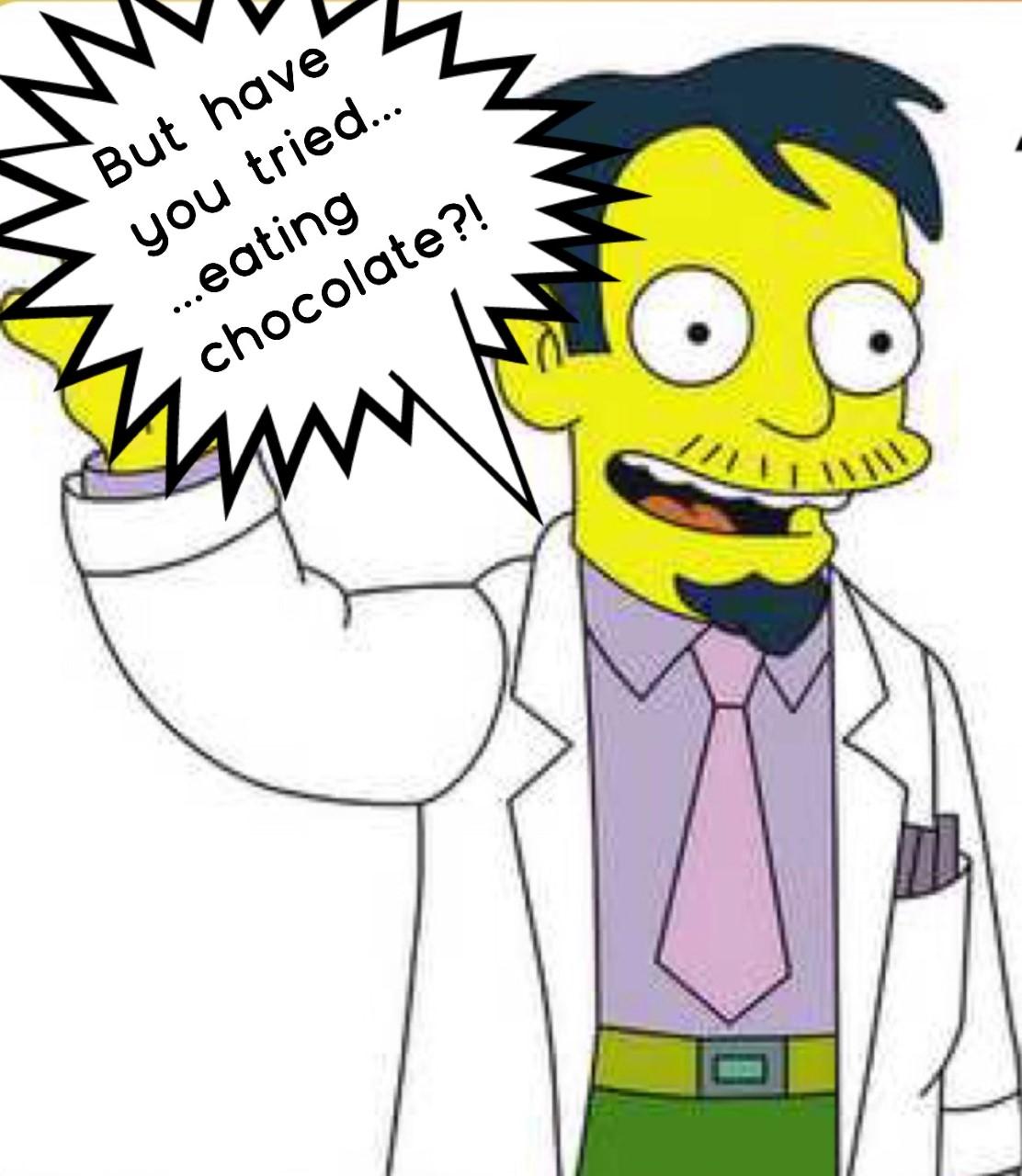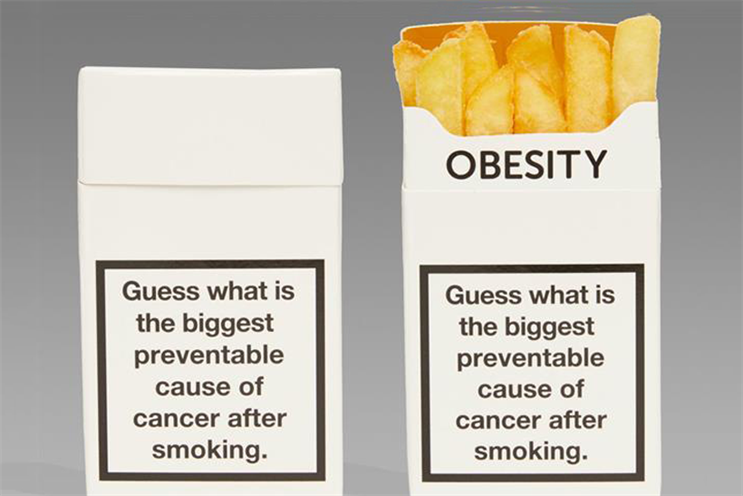
Imagine you’re a GP faced with a female patient who’s arms are so small they require a child’s blood pressure machine. Her complaint is chronic back ache, so you examine her spine, only to be near revolted by the sight of her protruding vertebrae and angular shoulder blades. No wonder her bones hurt – there is minimal tissue to support them. She acknowledges that her job is ‘stressful’ and that she needs to gain weight. You advise the following: ‘Do everything you’re usually told not to do. Don’t go to the gym, don’t do an exercise, eat plenty of chocolate. Follow the opposite of what you think is healthy.’ The thin girl jumps up, smiles and assures you that’s exactly what she’ll do. After all, she never really liked the gym anyway. You book her in for a follow up appointment in three weeks. Just in case. The thin girl in this thrilling tale is me. The doctor, my NHS GP.
Of course, I still went to the gym twice weekly and I didn’t eat chocolate. In fact, over the following two weeks, I didn’t eat much of anything. I did go to the follow-up appointment, only this time with my mum (not my choice) and sat forlornly in the corner whilst my doctor Googled, ‘eating disorder specialist in Finchley’. This was only after my mother, in true superhero style, had explained to my GP that, although she couldn’t be sure, it looked to her like an eating disorder. Now, after reading last week’s damning reports about NHS care (or lack of) for ED patients, I no longer blame my doctor for his astounding ignorance.
Well, I blame him less. Both the charity B-eat and an all party parliamentary committee of MPs produced reports to review the current quality of NHS eating disorder services following the tragic deaths of a handful of patients in 2017. As well as the obvious scandalous delays (six months in some areas, a year in others), failings on the part of GPs were a noted concern. According to the Public Administration and Constitutional Affairs Committee, there’s a critical lack of understanding amongst doctors, largely due to their pathetic amount of training. In six years, just two hours are devoted to eating disorders – the mental illness that kills more than any other. One GP interviewed as part of the report said that he didn’t use a section order on his dangerously anorexic patient because – get this – he DIDN’T THINK SHE HAD A MENTAL ILLNESS.
My GP suddenly seems like a medical genius. Another 2018 review called for an ‘urgent’ review of doctor training in eating disorders, revealing that even across 16 years of specialist medical training, ED education is limited to two hours. The MPs concluded: ‘While the number of hours spent in training does not on its own determine the competence of clinicians, two hours of training on such a complicated topic is insufficient.’ Clearly the GP can’t be expected to be equipped with the specialist tools needed to treat eating disorders. But that doesn’t mean their role isn’t an essential part of the route to recovery. Unfortunately, with delays as they are, a competent, understanding doctor can – more than ever before – be the difference between life and death. I know of several former sufferers who count their weekly weigh-ins with their GP as imperative to their survival. For some, it meant a faster life-saving hospital admission whilst for others; it’s a vital reminder that somebody out there gives a shit that they are still alive.
‘IN ONE TRAINING SESSION, A DIABETES “EXPERT” TOLD US NOT TO EAT PASTA AND THAT CARBS WERE AWFUL. I WAS HORRIFIED.’
So what’s it like to be an overstretched, over-worked GP and be faced with a problem you know next-to-nothing about? I asked one doctor working in central London if things are really as depressing as they sound.
‘I had a few hours training when I was at medical school,’ he tells me. ‘Maybe a day at most. And I remember the patient they used was a thin, white, teenage girl so it reinforced the old stereotypes. But we know that eating disorders can affect everyone. Most doctors are trained in the old ways and will only really consider BMI. They don’t understand that the illness isn’t about vanity and caring too much about the way you look. Even if GPs suspect an eating disorder and might give out the classic questionnaire, patients will most likely hide it and answer no to all the questions.’
Is he any different? ‘My former partner was an eating disorders nurse so I learnt a bit more about it through him. But before we got together, I thought the same – that it was mainly young girls obsessing about the way they looked. I didn’t understand the shame that comes with it.’ John* spent a number of years working on a paediatrics ward, treating young adults with a whole range of complex problems – including mental illness. This deepened his understanding, something that doesn’t happen for most. ‘Things have changed over the last few years. I used to meet the child psychiatrist on my ward every month or so for a chat about patients and further my knowledge. But now you never see them because they are underfunded and overstretched.’
It is estimated that at least 1.25 million people in the UK currently have an eating disorder. It sounds like a lot, but is a drop in the ocean compared to the swarms of patients with obesity-related illnesses, supposedly squashing our NHS. But arguably, the two patient cohorts may, at times, cross over. John* agrees. ‘Plenty of people with very high BMIs are struggling with emotional eating problems. There hasn’t been one patient I have seen, no matter their size, who doesn’t hate getting on the scales. But most GPs are still working to the BMI model and we know that doesn’t always work at an individual level.’
Over the years I’ve had many a conversation with GPs about this very subject. Most have told me they think the current cultural obsession with obesity-related illness could be contributing to the problem. ‘Because we see lots of patients with conditions whereby obesity is a causal or contributing factor, there’s this big focus on getting people to lose weight. Public health messages tell us that obesity causes cancer and this influences doctors. The way most GPs ask about weight is all wrong. They don’t realise it could lead to disastrous consequences.’ Plenty of friends crippled by eating disorders, but appearing with a seemingly ‘normal’ weight, have told horrific stories of GPs advising them to diet, lose weight or ditch sugar. And this seems to make perfect sense, given some the nature of some extra-curricular ‘training’. John tells me of one training day that made my blood run cold.

‘A diabetologist led a session about diabetes for the doctors and other staff at my practice,’ he tells me. ‘He spoke about why no one should eat pasta and how carbs are giving everyone diabetes. I was horrified. We had a lovely spread of sandwiches for lunch but the minute he started saying his bit, everyone gradually put their sandwiches down.’ I guess GPs are just a victim of circumstance. It’s no wonder GPs are warding patients off sugar before even asking them what it was they came in for (true story, friend of a friend). Sadly John is now armed with unique insight into EDs having had personal experience of the illness in recent years – a close friend has anorexia. But even the most understanding, empathetic and helpful GPs can’t magic up a specialist appointment. And here lies the other, critical issue.
‘We’re basically holding people in the GP surgery,’ he says. ‘We do bloods every week and weigh them if they need it but, just like if someone had a heart attack, they need a specialist to treat them. It is so easy to say the wrong thing. We refer them but know they’ll face six month waiting lists, so it just feels helpless.’ And as far as John’s concerned, the problem is getting worse. ‘There’s a rise in eating disorders across the country. I’m seeing more and more parents coming in telling us they are worried about body dysmorphia in their kids. I think it’s only going to get worse.’ Oh, great.
But it’s not all bad news. There are several wonderful, London-based GPs who I have met along the way that have tremendous insight into this horrific illness. Otherwise, there’s the charity B-eat, who have crafted guides to spotting tell-tale signs for both patients and GPs. Both can be downloaded from their website. Or, take a ball-busting, stubborn friend or relative into the appointment with you. I’ve heard that works a treat.



